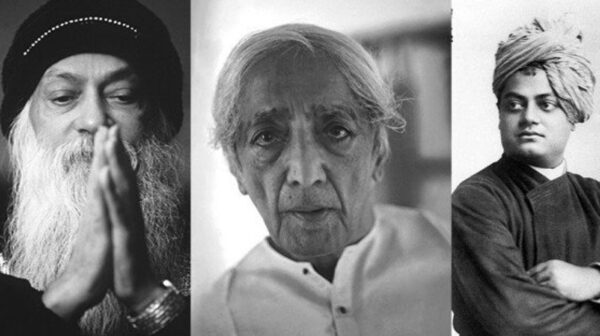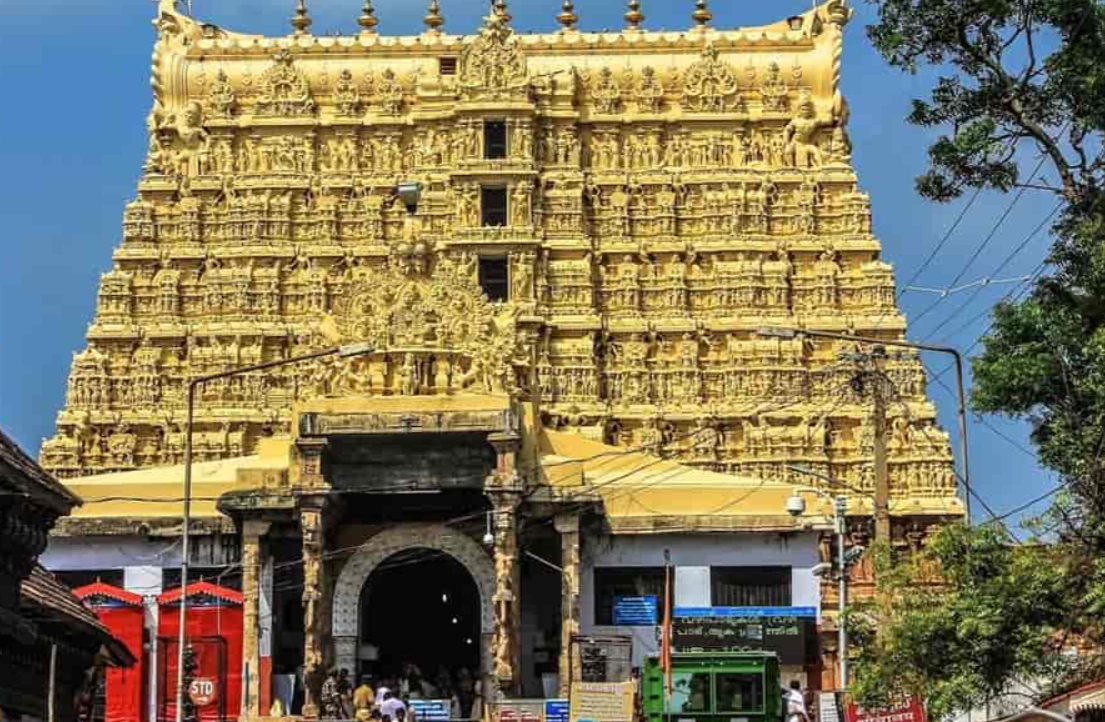Indians have long been celebrated for their profound wisdom and knowledge, which has garnered admiration worldwide. Throughout history, several eminent Indian philosophers have shared timeless insights that have illuminated the path for countless individuals across the globe. These revered thinkers have helped people understand their surroundings and strive towards a better world. This article explores the lives and contributions of ten of the most famous Indian philosophers, whose ideas continue to inspire and resonate today.
Top 10 Famous Indian Philosophers
1. Ramakrishna Paramahamsa
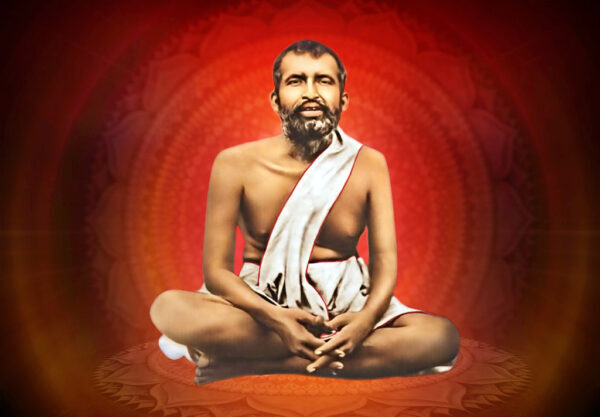
Among the most renowned Indian philosophers, Ramakrishna Paramahamsa stands out for his profound spiritual teachings and unwavering devotion. His life and teachings have been translated into over 80 languages, reflecting his global impact. Ramakrishna was a devoted follower of the goddess Kali and explored various religious practices within the Hindu tradition. He championed the idea of religious unity, asserting that all religions lead to the same ultimate truth. His disciples, including the famous Swami Vivekananda, played a crucial role in spreading his teachings both in India and abroad. Swami Vivekananda’s efforts were instrumental in bringing Ramakrishna’s philosophy to the Western world, further establishing his legacy as one of India’s most influential spiritual figures.
2. Swami Vivekananda
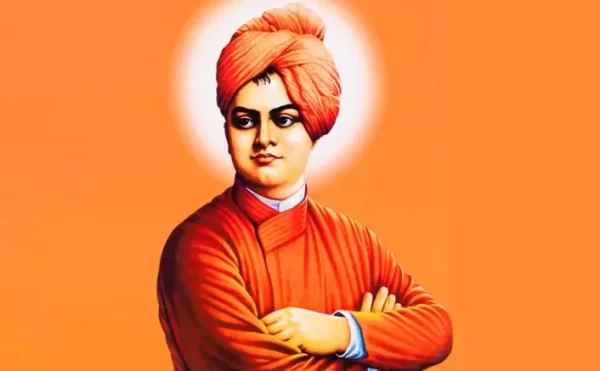
Born Narendranath Datta, Swami Vivekananda was a pivotal figure in Indian philosophy and spirituality. A prominent Hindu monk, philosopher, and author, Vivekananda is credited with introducing Yoga and Vedanta to the Western world. He is often hailed as the father of Indian nationalism for his role in elevating Hinduism on the global stage during the 19th century. Vivekananda’s speeches and writings, delivered at various international forums, showcased his profound insights and eloquence. His birthday is celebrated as National Youth Day in India, honoring his contributions to spiritual and national consciousness.
3. Adi Shankara
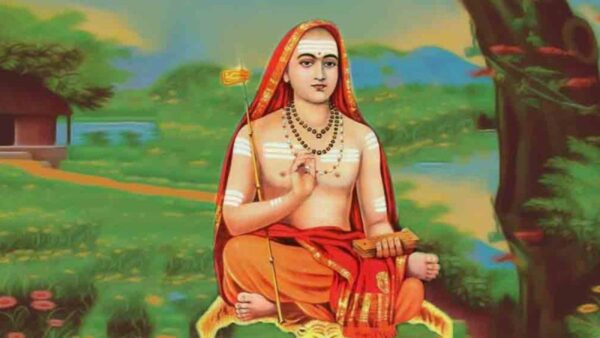
Adi Shankara, a towering figure in Indian philosophy, is best known for his role in Advaita Vedanta, a non-dualistic school of thought. As a leading Vedic scholar and Acharya, Shankara is credited with revitalizing Hinduism during a time of significant religious diversity. He emphasized the unity of all existence and sought to harmonize various religious practices through the introduction of the Panchayatana worship system. Shankara founded several monasteries and established the Dashanami monastic order, contributing significantly to the preservation and propagation of Hindu philosophy.
4. Vyasa
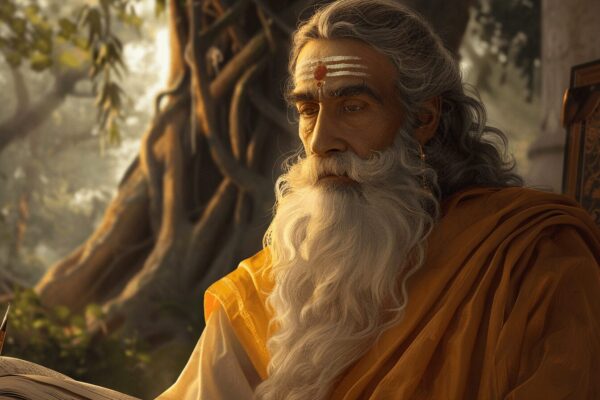
Vyasa, often revered more as a saint than a philosopher, played a crucial role in Indian spiritual and literary history. Traditionally attributed as the author of the Mahabharata, Vyasa is also recognized for classifying the Vedas and compiling the Eighteen Puranas and the Brahma Sutras. His contributions to the Vedic tradition and literature have had a lasting impact, with Vyasa being celebrated as an immortal figure in Hindu tradition, continuing to be revered in the present Kali Yuga.
5. Chanakya
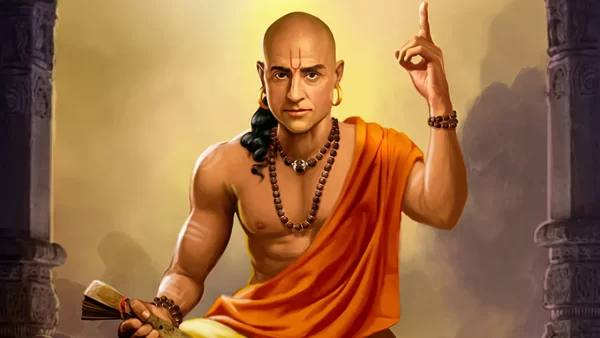
Chanakya, also known as Kautilya, was a remarkable ancient philosopher, economist, and jurist. Born around 371 BC, he is best known for his role in establishing the Mauryan Empire and his work as a royal advisor. Chanakya’s most significant contribution is the Arthashastra, an ancient political treatise that remains highly relevant today. This seminal work on governance, economics, and strategy continues to influence modern management and political thought.
6. Rabindranath Tagore
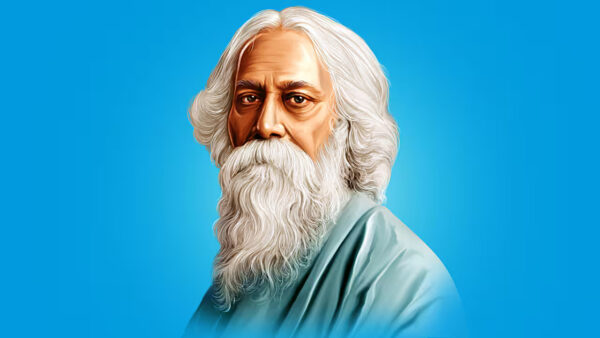
Rabindranath Tagore, born in Kolkata in 1941, was a polymath whose contributions spanned literature, art, and philosophy. Known as the “Bard of Bengal,” Tagore’s influence on Bengali literature and music is profound. He was the first non-European to win the Nobel Prize for Literature and composed the national anthems for both India and Bangladesh. His most celebrated work, “Gitanjali,” reflects his philosophical and poetic brilliance, marking him as a towering figure in Indian and global intellectual history.
7. Dayananda Saraswati
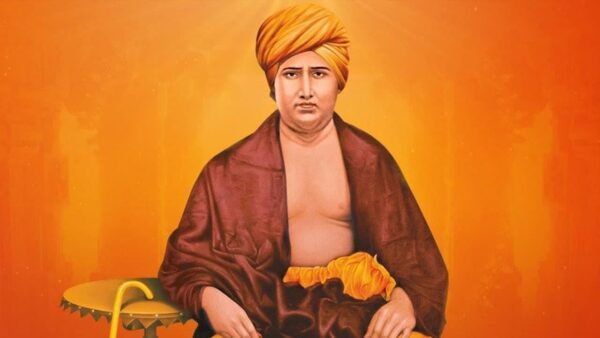
Dayananda Saraswati, the founder of the Arya Samaj, was a prominent Hindu philosopher and social reformer. His work in leading the reform movement within Hinduism was transformative, with his book “Satyarth Prakash” being a significant contribution to Vedic philosophy. Dayananda’s advocacy for karma, reincarnation, and opposition to untouchability earned him recognition as one of the key architects of modern India. His efforts in promoting social reform and spiritual awakening left a lasting legacy.
8. Gautama Buddha

Gautama Buddha, a prince who renounced his wealth in pursuit of spiritual enlightenment, founded Buddhism in the 6th century BCE. His teachings, collectively known as Dharma, focus on the fundamental principles of cause and effect, emphasizing the impact of one’s thoughts on their reality and actions. Buddha’s philosophy has had a profound influence on both spiritual and secular thought, offering timeless wisdom on the nature of suffering and the path to enlightenment.
9. Jiddu Krishnamurti
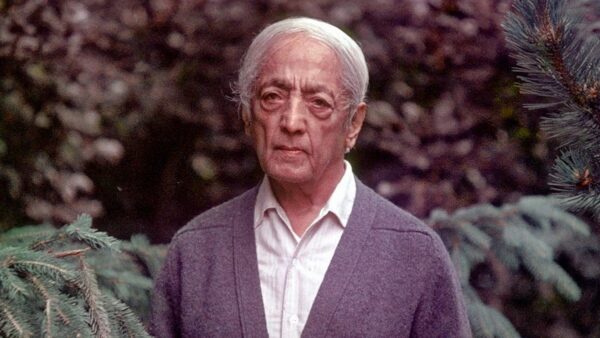
Jiddu Krishnamurti was a contemporary Indian philosopher and spiritual teacher known for his radical views on truth and personal freedom. He famously declared that “Truth is a pathless land,” advocating for direct, personal inquiry rather than adherence to any specific teacher, doctrine, or tradition. Krishnamurti’s emphasis on psychological freedom, awareness, and the exploration of human consciousness has inspired many around the world, with his talks and writings continuing to resonate with those seeking deeper understanding.
10. Ramanuja
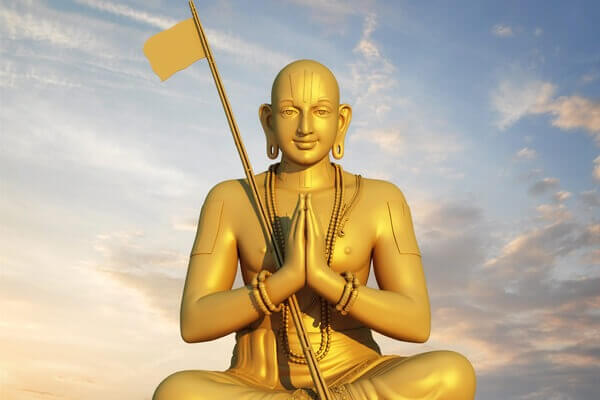
Ramanuja, also known as Ramanujacharya, was a significant philosopher, social reformer, and guru in the Vaishnavism tradition. Born into a Tamil Brahmin family, he played a crucial role in shaping the Bhakti movement and advocating the sacredness of nature and its resources. Ramanuja’s contributions to the Vedic literature and his efforts in promoting the Vaishnavism tradition have left an indelible mark on Indian philosophy and spirituality.
In conclusion, the legacy of these famous Indian philosophers is profound and enduring. Their contributions to philosophy, spirituality, and social reform have not only shaped Indian culture but have also made a significant impact on global thought. Their teachings continue to offer valuable insights and guidance, reflecting the timeless wisdom that Indian philosophers have shared with the world. As we reflect on their contributions, we recognize the enduring relevance of their ideas and the ways in which they have influenced and enriched the spiritual and intellectual landscape of humanity.

